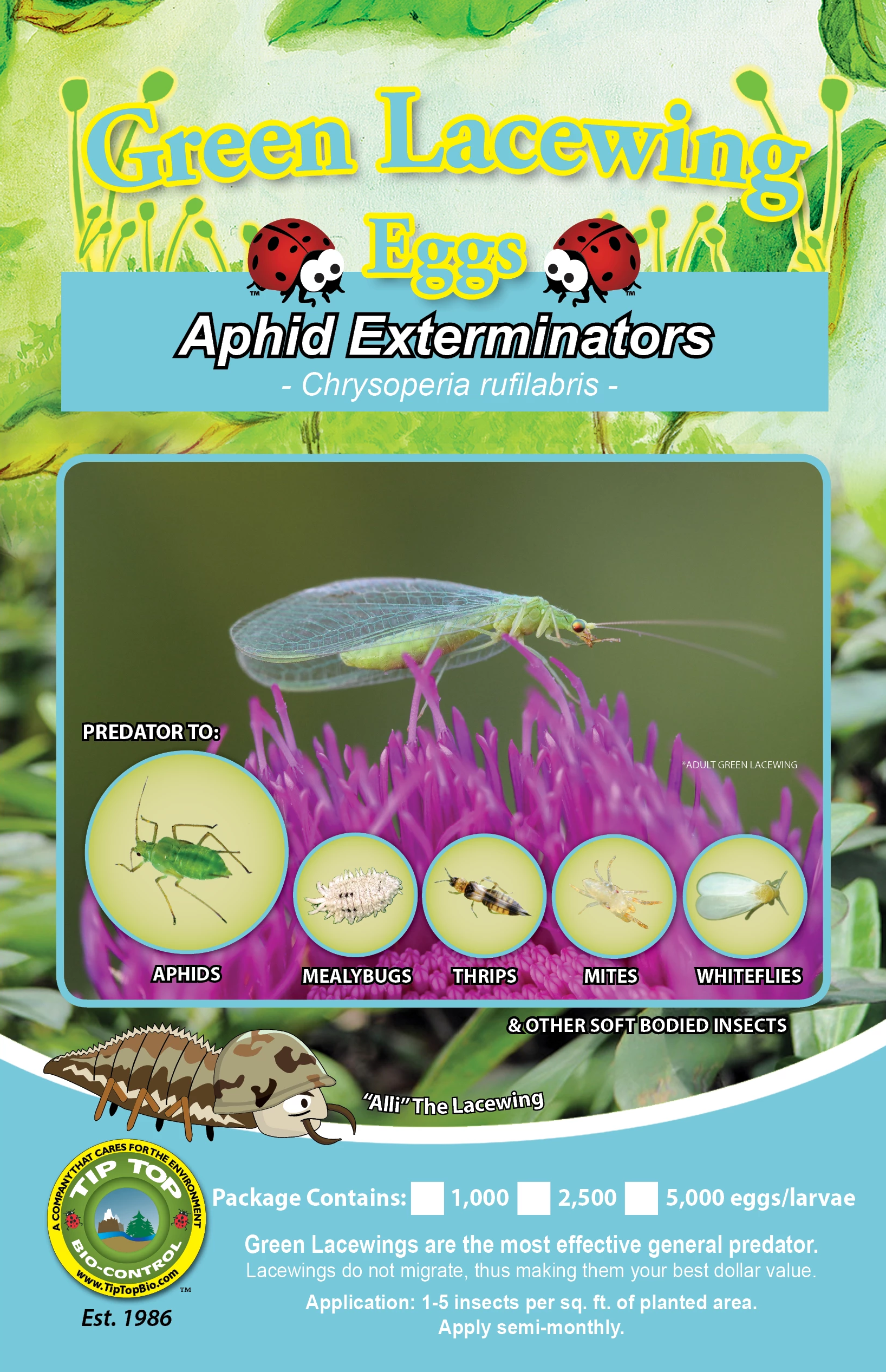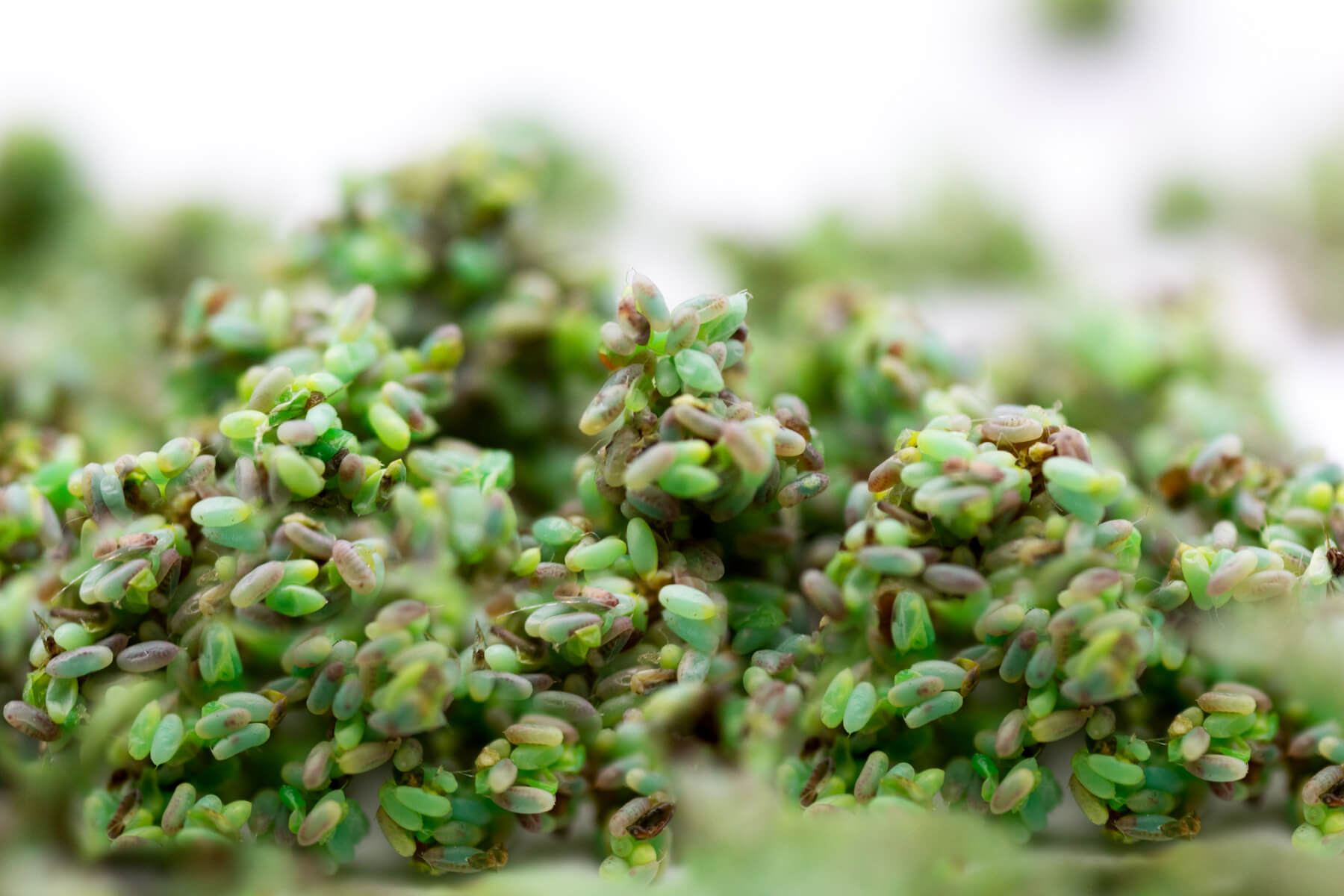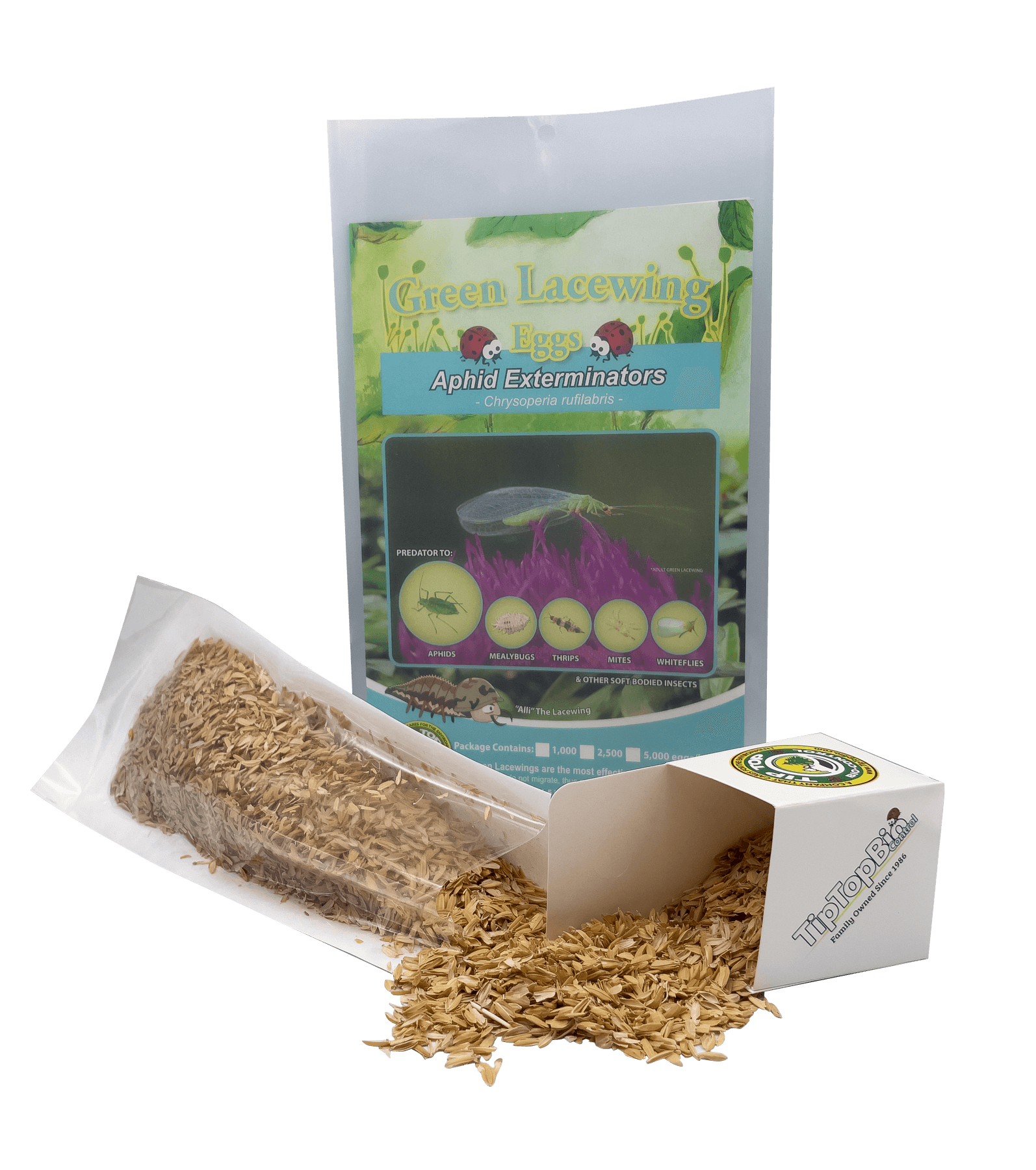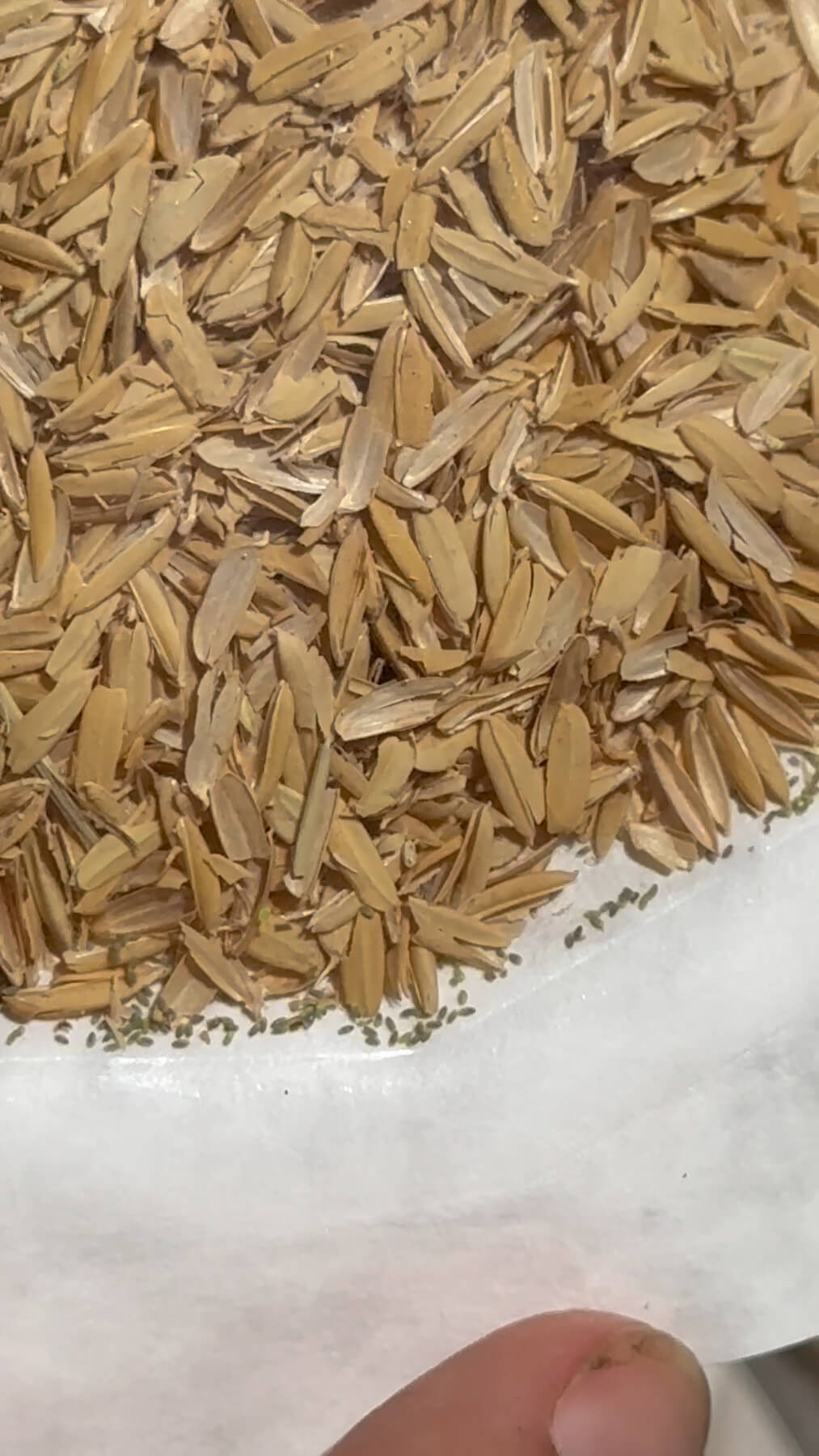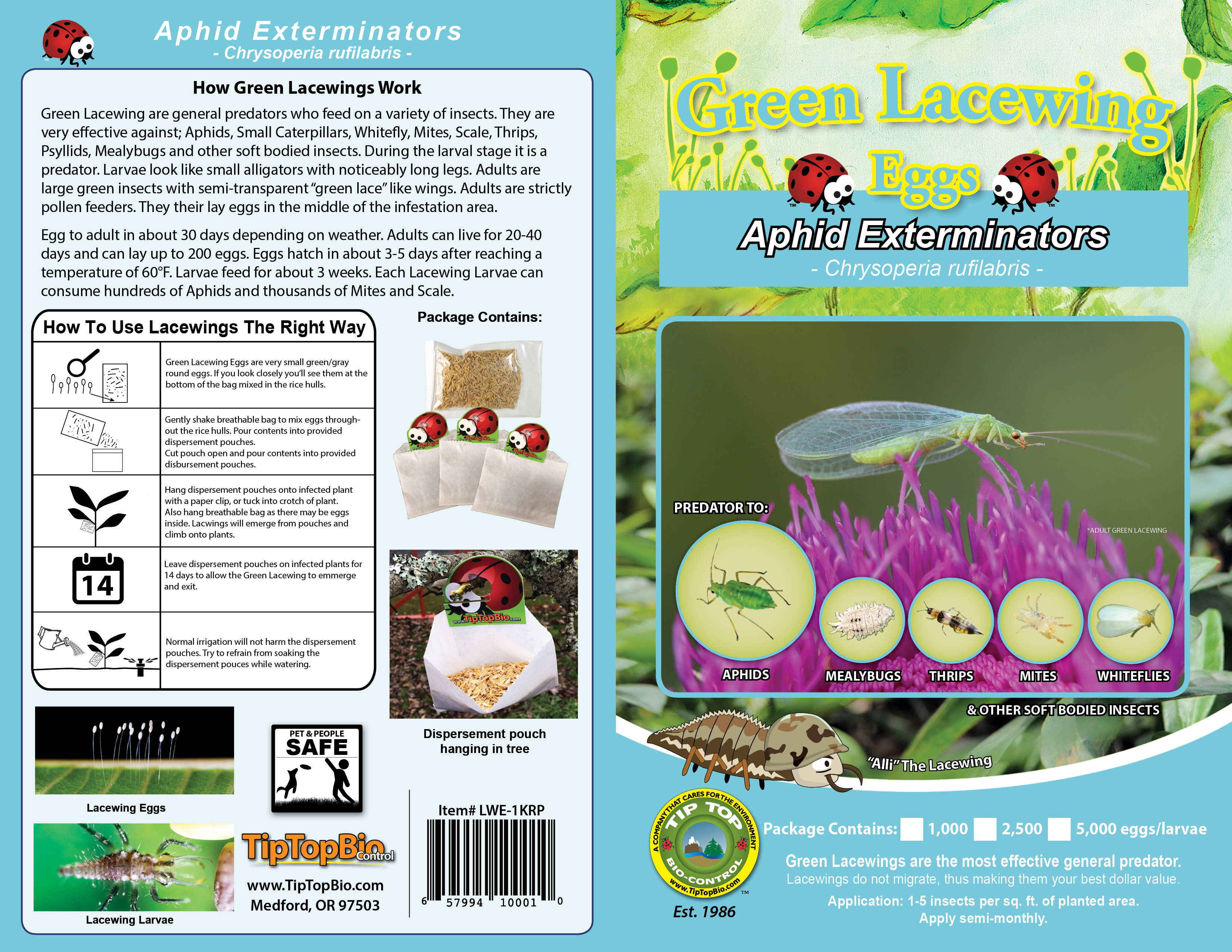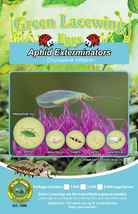1,000 Green Lacewing Eggs in Rice Hulls - Retail Pouch
Case Count
Couldn't load pickup availability
LIVE DELIVERY GUARANTEE
Early establishment for preventative care.
TARGET PESTS
Aphids, Mealybugs, Spider Mites, Thrips, Whiteflies, & many other soft-bodied insects.
DESCRIPTION
Scientific Name: Chrysoperla rufilabris
GREEN LACEWINGS are one of the garden’s ultimate defenders and well known as a reliable defender against aphids and a wide range of other destructive pests. Their versatility as both pest predators and pollinators make them a must-have during all growing seasons. Adults Measure about ½ - ¾ inches in length, are typically green or light brown in color with a slender body, and delicate looking lace-like wings. While the larvae primarily target soft-bodied insects the adults will lay eggs and feed on nectar, pollen, and honeydew often contributing as a garden pollinator. In some cases, adult green lacewings may overwinter in protected places such as cracks and crevices and emerge in the following growing season.
Female GREEN LACEWINGS lay tiny, oval-shaped yellow or greenish eggs, often attached to fine stalks, near areas with large pest populations. After approximately 2-7 days the eggs hatch into alligator-like larvae that actively hunt, capture, and feed on various soft-bodied pests. The larvae is the predatory stage and can last for 2-4 weeks while they undergo multiple molts as they develop and grow. After the larval stage, lacewings enter the pupal stage for about 5-7 days until they emerge as fully developed adults with a lifespan of several weeks to a few months. Under favorable conditions, each female can lay up to 200 eggs, establishing a repeating cycle of new larvae and adults.
To make an informed decision about which stage to introduce to your garden, it’s important to assess specific pests, the timing of their life cycles, and the environmental conditions of your garden. If you’re looking for an immediate solution, then larvae are the way to go. If you’re looking for a long-term solution with the potential for continuous pest control, starting with eggs or adults may be beneficial. In many cases, a combination of stages may be used for more comprehensive pest control.
TEMPERATURE
60-95°F
INTRODUCTION RATES
1 insect per sq. ft., monthly, as needed.
It's important to note that these release rates serve as general guidelines and may vary based on the specific pest species, the crop or plant being treated, and level of infestation. Proper monitoring of the infestation and the subsequent effectiveness of the released beneficial insect population is crucial for determining the success of the biological control strategy.
INTRODUCTION METHODS
-
EGGS IN RICE HULLS:
Gently disperse eggs and rice hulls into hanging release boxes. Hang release box on infested plant limb, out of direct sunlight.Each pack of lacewing eggs in rice hulls will include hanging boxes according to the quantity that was ordered.
1k- 5 boxes
5k - 10 boxes
10k - 15 boxes
100k - 100 boxes
EGGS ON HANGING CARDS:
Hang card on infested plant limb, out of direct sunlight.LARVAE:
For best results, release larvae immediately. Gently disperse larvae evenly onto infested plant. Leave container around infested plant to allow any remaining predatory larvae to be released.ADULT:
For best results, release adults immediately. It is recommended to release in the morning or evening. Remove lid and gently tap container to release. Use cardboard (included) to regulate amount released throughout target area.
GOOD BUG SUPPLEMENTAL DIET
Maintain your growing operation with well-fed beneficial insects as your natural defenders. By providing a dependable food source, you enhance their strength and effectiveness.
Our Good Bug Supplemental Diet combines Ephestia and Artemia, which are highly nutritional food sources rich in proteins, lipids, and essential fatty acids.
Packaged on easy-to-use hanging tabs!
STORAGE
Store in fridge for up to 14 days.
PRO TIPS:
Proper identification of the pest species is important. Monitoring the crop closely and introducing beneficial insects early will help in control pest populations.
Pesticides, even wetting agents, and spreader-stickers may adversely affect beneficial insects' survival. Broad spectrum and systemic insecticides are toxic.
WHOLESALE
Guaranteed Sale Program Qualifying Items:
LWE-1KRC: 1,000 Green Lacewing Eggs in Rice Hulls - Stackable Retail Cup
LWE-1KRP: 1,000 Green Lacewing Eggs in Rice Hulls - Hanging Retail Pouch
Case Count: 6 Units per Case
Free shipping eligibility when ordering 2+ cases.
ITEM NUMBERS
LWE-1KRC: 1,000 Green Lacewing Eggs in Rice Hulls - Stackable Retail Cup
LWE-1KRP: 1,000 Green Lacewing Eggs in Rice Hulls - Hanging Retail Pouch
LWE-5KRP: 5,000 Green Lacewing Eggs in Rice Hulls in Pouch
LWECARDED-5K: 5,000 Green Lacewing Eggs on 30 Hanging Cards

